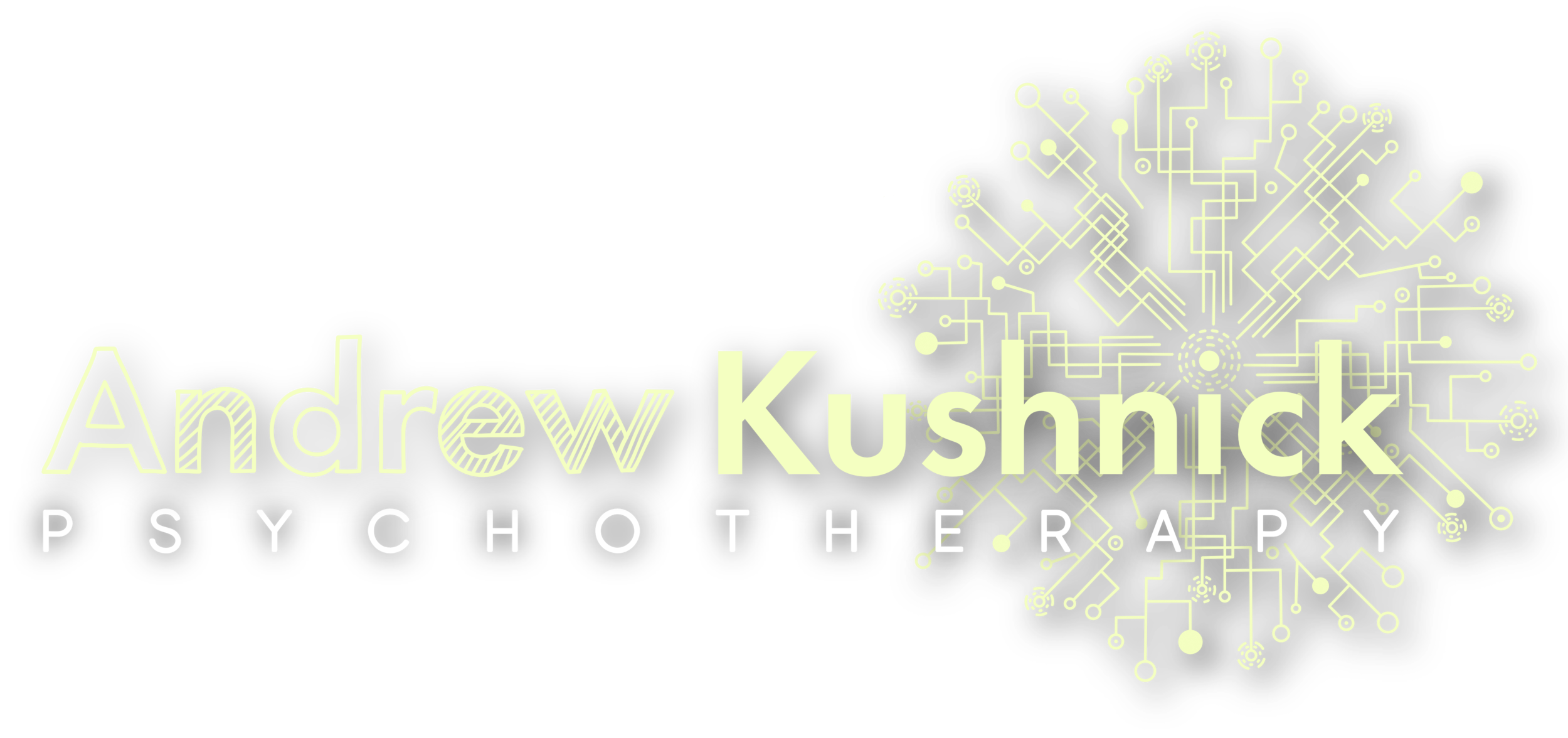
Therapy should never be “one size fits all.” You’re an individual, and you deserve an approach that fits you - your experience, your mindset, the way you see things.
The tech space can be incredibly rewarding, but as with any profession it offers a unique set of challenges. A practical, evidence-based, science-based approach can help you learn how to conquer those challenges, improve your relationships, reduce stress and anxiety, and enhance your career prospects.
Let’s explore solutions that are tailored just for you. Let’s make them concrete and actionable, so that you can try them out right away.
Challenges of working in tech
You design and maintain the things we all rely on. Things that keep us connected, entertained, informed, productive. You’re part of this incredible hub of innovation in the Bay Area.
But because of the nature of the tech space, have you been hoping for more genuine connection? Wishing you could interact more easily with whoever’s around you? With so many jobs and so much competition, it can be easy to feel pressured or stressed. It’s also common to feel isolated or left behind, as if everyone might be replaceable.
The emphasis on logic in this workspace can be disconcerting. It can leave no room for how you’re doing, how you’re feeling, whatever’s on your mind, etc. If only human emotions were as concrete or quantifiable as going through lines of code, life would be so much better, right?
As you’re just trying to do your best at work, what about sleep? What about feeling completely relaxed when you get home... having time for dating or a relationship... keeping up a social life? When you’re in the middle of a sprint, anticipating a performance review, or preparing for a launch, it can be tough to focus on anything outside of work, much less improve it.
Hit me up!
VIDEO THERAPY
Video therapy is super convenient. Methods and protocols are adapted to the video format, which may super-charge your progress. Check out my Online Therapy page for more info!
““I’m an entrepreneur, mid-20s, male, and have seen [Andrew] for... social anxiety, ‘personal story development,’ work-related stress, and cofounder relationship. On all of these topics, he’s pushed me when I’ve needed to get out of my comfort zone, given me a completely different way of thinking that simply didn’t occur to me before, or been an ever-appreciated sounding board to guide me...””

Common mental health concerns in tech
Over several years, my therapy practice has intersected with tech in a big way. I’ve met with programmers, developers, designers, product managers, project managers, architects, and even cofounders. They’ve worked in sales, business development, marketing, management, operations, human resources, recruiting and legal.
While each individual is unique, some common themes have emerged in what they describe. Here’s a sampling:
Stress and burnout
“I’m not sure if I want to be a coder anymore”
Isolation and loneliness
“I Slack my coworkers, but we rarely see each other’s faces.”
“Now that I’m WHF all the time, I kinda miss people. Zoom calls are just not the same”
Depression
Lack of sense of purpose
“Honestly, I don’t believe in the product as much as I’m supposed to.”
Tense relationships
“My manager is impossible.”
“I don’t really feel connected to my team.”
“I wish someone had taught me how to deal with idiots.”
Unclear / indirect communication
“The user makes requests for features, but I don’t think they know what they actually need.”
Anxiety
Perfectionism
“I’ve revised the deck about 8 times. I never know when it’s good enough.”
A workplace culture that discourages sharing feelings
Addictions
“I wind up checking my Instagram like every few minutes…”
Lack of guidance / mentoring
“You’d think having a hands-off manager would be great. But I gotta figure everything out on my own.”
Stress and anxiety in tech
Although the pay is usually decent, working in tech can lead anyone to feel stressed or anxious.
Yes, tech workers are still in demand in the job market. But there’s often pressure to perform, to get ahead, to move up the ladder. It might not be enough to just know how to code well. In many settings you’re expected to take ownership of projects, get promoted to team lead, become a manager, etc. All while dealing with folks who may be competitive, bossy, or just plain difficult.
And it’s not always a nice, easy pace, right? When you’re in the middle of a tough sprint, your work becomes your life. Even if a product launch is far away, you might still be working long hours. If you’re working from home, it may seem impossible to discipline yourself to stay focused.
And the meetings! Ugh. Okay, performance reviews serve a purpose, but why so many meetings in general? So much time that could be spent being productive.
If you’re looking to quit your job and find another, why’s it such an ordeal? It sucks to have to study for technical interviews. And to have to go through so many steps, interviewing with the entire universe? Spending a full day at a whiteboard or with a panel can be exhausting.
Solutions to cope with stress in tech
Your unique mindset enables you to design, build, troubleshoot, and optimize. Your analytical abilities lead to devices and programs that benefit us all. Let’s leverage these superpowers, and devise life hacks to help you feel happier, less stressed, more connected to the people who matter to you. Here’s a sampling:
Remember what Mom told you about sharing.
But now it’s not about toys, but feelings. If there’s anyone at work that you know and trust, try sharing a little about how things are going for you. That may lead them to open up to you as well, and poof… a friendship is born. It’s helpful to hear how your peers are handling the stress, and it feels good to vent to someone who knows what you’re talking about. This all requires you to...
Know feelings like you know Python.
Why? Because social connections reduce stress. And for social connections to go smoothly, each person needs to feel that the other “gets” them, and cares. You can show this by asking someone how they're doing in a way that shows that you mean it. And then listening for the answer. Still on the subject of social connections...
Stay connected even when you can’t see your friends and coworkers.
Loneliness is linked to a higher risk of heart disease, dementia and depression. Although you may be working from home, you can still cultivate some relationships, and reap the rewards. A quick DM or text takes less than five seconds.
Say hello to the other half of your brain.
When you’re writing or troubleshooting code, you’re using your left brain, which is responsible for linear thinking, logic and sequencing. Tapping into your right brain provides some balance. You can do this by: being creative, daydreaming, using your imagination, or even by listening to music.
Try intermittent screen fasting.
I know, I know… We’ve all heard a million times how we should reduce our screen time, and it gets kinda annoying. But stepping away can reduce your risk of depression and maybe other mental health disorders. Challenge yourself to set aside an hour per day where you turn off all devices and do literally anything else, especially outside! It’ll help you feel more relaxed, more in balance.
Push pause on work.
Unless you’re literally required to be “on call” at night, set a boundary around your work hours. Decide what works for you - what helps you feel more relaxed. If you want to get good sleep, and feel more balance in your life, allow your brain to rev down for a few hours before bedtime. That means something mindless, something calming.
Pretend that dumb ideas aren’t dumb.
Some coworkers may cling to their ideas for dear life, just because they thought of them. To reduce conflict and preserve harmony, consider letting go of who’s right and who’s wrong, and help people feel good about themselves. Consider acknowledging the value of ideas you’re not thrilled about. You can privately know that you’re right, and still benefit from the connection.
Therapy should never be “one size fits all.” You’re an individual, and you deserve an approach that fits you - your experience, your mindset, the way you see things.
The tech space can be incredibly rewarding, but as with any profession it offers a unique set of challenges. A practical, evidence-based, science-based approach can help you learn how to conquer those challenges, improve your relationships, reduce stress and anxiety, and enhance your career prospects.
Let’s explore solutions that are tailored just for you. Let’s make them concrete and actionable, so that you can try them out right away.
Challenges of Working in Tech
You design and maintain the things we all rely on. Things that keep us connected, entertained, informed, productive. You’re part of this incredible hub of innovation in the Bay Area.
But because of the nature of the tech space, have you been hoping for more genuine connection? Wishing you could interact more easily with whoever’s around you? With so many jobs and so much competition, it can be easy to feel pressured or stressed. It’s also common to feel isolated or left behind, as if everyone might be replaceable.
The emphasis on logic in this workspace can be disconcerting. It can leave no room for how you’re doing, how you’re feeling, whatever’s on your mind, etc. If only human emotions were as concrete or quantifiable as going through lines of code, life would be so much better, right?
As you’re just trying to do your best at work, what about sleep? What about feeling completely relaxed when you get home... having time for dating or a relationship... keeping up a social life? When you’re in the middle of a sprint, anticipating a performance review, or preparing for a launch, it can be tough to focus on anything outside of work, much less improve it.
Common Mental Health Concerns in Tech
Over several years, my therapy practice has intersected with tech in a big way. I’ve met with programmers, developers, designers, product managers, project managers, architects, and even cofounders. They’ve worked in sales, business development, marketing, management, operations, human resources, recruiting and legal.
While each individual is unique, some common themes have emerged in what they describe. Here’s a sampling:
Stress and burnout
“I’m not sure if I want to be a coder anymore.”
Isolation and loneliness
“I chat with my coworkers on Slack, but we rarely see each other’s faces.”
“I used to dream of working from home, but now that it’s all the time, I kinda miss people. Zoom calls are just not the same”
Depression
Lack of sense of purpose
“Honestly, I don’t believe in the product as much as I’m supposed to.”
“I wish I was building something that helps people more directly.”
Tense relationships
“My manager is impossible.”
“I don’t really feel connected to my team.”
“I wish someone had taught me how to deal with idiots.”
Unclear / indirect communication
“The user makes requests for features, but I don’t think they know what they actually need.”
Anxiety
Perfectionism
“I think I’ve revised that slide deck about 8 times. I never know when it’s good enough.”
A workplace culture that discourages sharing feelings
Addictions
“I wind up checking my phone like every few minutes… Wish I had some other thing to do when I’m stressed.”
Lack of guidance / mentorship
“My manager is pretty hands-off, which most people would say is great. But it’s weird to have to figure everything out on my own.”
Stress and Anxiety in the Tech Industry
Although the pay is usually decent, working in tech can lead anyone to feel stressed or anxious.
Yes, tech workers are still in demand in the job market. But there’s often pressure to perform, to get ahead, to move up the ladder. It might not be enough to just know how to code well. In many settings you’re expected to take ownership of projects, get promoted to team lead, become a manager, etc. All while dealing with folks who may be competitive, bossy, or just plain difficult.
And it’s not always a nice, easy pace, right? When you’re in the middle of a tough sprint, your work becomes your life. Even if a product launch is far away, you might still be working long hours. If you’re working from home, it may seem impossible to discipline yourself to stay focused.
And the meetings! Ugh. Okay, performance reviews serve a purpose, but why so many meetings in general? So much time that could be spent being productive.
If you’re looking to quit your job and find another, why’s it such an ordeal? It sucks to have to study for technical interviews. And to have to go through so many steps, interviewing with the entire universe? Spending a full day at a whiteboard or with a panel can be exhausting.
Solutions to Cope with Stress in Tech
Your unique mindset enables you to design, build, troubleshoot, and optimize. Your analytical abilities lead to devices and programs that benefit us all. Let’s leverage these superpowers, and devise life hacks to help you feel happier, less stressed, more connected to the people who matter to you. Here’s a sampling:
Remember what Mom told you about sharing.
But now it’s not about toys, but feelings. If there’s anyone at work that you know and trust, try sharing a little about how things are going for you. That may lead them to open up to you as well, and poof… a friendship is born. It’s helpful to hear how your peers are handling the stress, and it feels good to vent to someone who knows what you’re talking about. This all requires you to...
Know feelings like you know Python.
Why? Because social connections reduce stress. And for social connections to go smoothly, each person needs to feel that the other “gets” them, and cares. You can show this by asking someone how they're doing in a way that shows that you mean it. And then listening for the answer. Still on the subject of social connections...
Stay connected even when you can’t see your friends and coworkers.
Loneliness is linked to a higher risk of heart disease, dementia and depression. Although you may be working from home, you can still cultivate some relationships, and reap the rewards. A quick DM or text takes less than five seconds.
Say hello to the other half of your brain.
When you’re writing or troubleshooting code, you’re using your left brain, which is responsible for linear thinking, logic and sequencing. Tapping into your right brain provides some balance. You can do this by: being creative, daydreaming, using your imagination, or even by listening to music.
Try intermittent screen fasting.
I know, I know… We’ve all heard a million times how we should reduce our screen time, and it gets kinda annoying. But stepping away can reduce your risk of depression and maybe other mental health disorders. Challenge yourself to set aside an hour per day where you turn off all devices and do literally anything else, especially outside! It’ll help you feel more relaxed, more in balance.
Push pause on work.
Unless you’re literally required to be “on call” at night, set a boundary around your work hours. Decide what works for you - what helps you feel more relaxed. If you want to get good sleep, and feel more balance in your life, allow your brain to rev down for a few hours before bedtime. That means something mindless, something calming.
Pretend that dumb ideas aren’t dumb.
Some coworkers may cling to their ideas for dear life, just because they thought of them. To reduce conflict and preserve harmony, consider letting go of who’s right and who’s wrong, and help people feel good about themselves. Consider acknowledging the value of ideas you’re not thrilled about. You can privately know that you’re right, and still benefit from the connection.

An evidence-based approach
I help those in the tech space reduce anxiety, navigate the work world, and navigate relationships. Relationships with coworkers, managers and co-founders... as well as romantic partners, friends and family members. My goal is to give you practical tools to connect more successfully, and get what you want out of life.
But therapy should go way beyond just having someone to talk to. You deserve approaches that are evidence-based and rooted in neuroscience, like EMDR, mindfulness-based practices, PACT (the Psychobiological Approach to Couples Therapy), and the Developmental Model of Couples Therapy. Our autonomic nervous system affects how we feel, think and behave. So why not apply insights from neuroscience if they’re going to help?
Learn how to cope with the unique challenges of the tech space with these blog posts:
We often describe frustrating conversations by what’s observable... “She started crying and said that I just don’t get it,” etc. But our behavior is actually guided by background processes in the brain. Get some practical relationship advice for the tech world by checking out “Full-Stack Relationship Development: 10 Back-End Processes.”
Once you’re familiar with these processes, it helps to know some essential communication skills to resolve conflict and improve relationships. Check out “10 Full-Stack Relationship Skills: Tuning Up the Processes.”
Hear the unique stories of engineers, programmers, and developers in the blog series “Profiles in Tech.” Each post derives from an interview with someone who works within the industry, and includes actionable mental health tips for techies.
Finally, there are so many good therapists out there! How can someone who works in tech know who’s going to be able to help? Discover what a techie should look for in a therapist.
About me
In a former career, I practiced law for over 10 years, working within diverse organizations, both large and small.
My legal education and experience trained me to begin with a complex set of information, apply a structural framework (e.g. legal and ethical principles), and synthesize a cohesive argument. This required critical thinking and logical reasoning.
This analytical sense informs my approach as a psychotherapist. In therapy, I believe that goals should be clearly defined. It should be spelled out clearly how we’re going to work toward those goals. Progress should be tracked along the way. You should clearly understand some solutions. They should be concrete and usable. The entire process should be transparent. As much as possible, it should be evidence-based, and rooted in science.
I have extensive experience working with clients in the startup and corporate worlds, from programmers and engineers… to HR professionals and sales reps… to business professionals and executives. We’ve tackled issues such as:
How to navigate conflict within a team, between managers and team members, between engineers and product managers, between cofounders, etc.
How to handle strong emotions when they arise at work.
How to feel less stressed throughout the day.
How to optimize interactions with coworkers, managers and clients, to set you up for success.
How to build rewarding relationships with coworkers, friends, significant others, and family members.
How to achieve better work-life balance.
How to get what you really want from your career.
Therapy solutions to help you
By working with a therapist who actually gets you, you might make faster progress. Together we can identify what’s going on, and find solutions that work for you.
Individual therapy
In individual therapy, we can work on:
Building the connections that you want.
Optimizing communications skills.
Making social interactions easier and more relaxed.
Identifying what fulfills you (in your career, in relationships, and in life).
Eliminating burnout in your work.
Lowering your stress with practical therapy tools.
Couples Therapy
In couples therapy, we can work on:
Reducing conflict by leveraging your cognitive style (and that of your partner).
Understanding each other better, with smart communication skills.
Helping both sides feel understood and taken care of.
Utilizing insights from neuroscience to improve relationship functioning.
Online Therapy
I offer video sessions via Zoom Healthcare, which is HIPAA-compliant (unlike regular Zoom).
With online therapy, we can:
Make scheduling way easier, especially if you’re working from home. It’s easy to block off an hour on your calendar to fit a 50-minute session in, instead of having to add the travel time.
Maximize your progress with more consistent sessions.
Utilize worksheets and other therapy tools with screen sharing.
Help you feel more comfortable… no need to go anywhere.
Check out my Online Therapy page for more info!
Hit me up!
Let’s craft a targeted, individualized plan to help you feel less stressed and more fulfilled. My practice is focused on the San Francisco Bay Area, but we can do online therapy as a convenient solution, if you live anywhere in California, Colorado, New York or Maine. Let’s get you some results!





